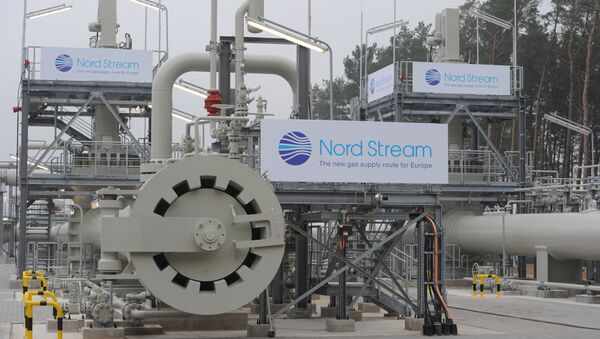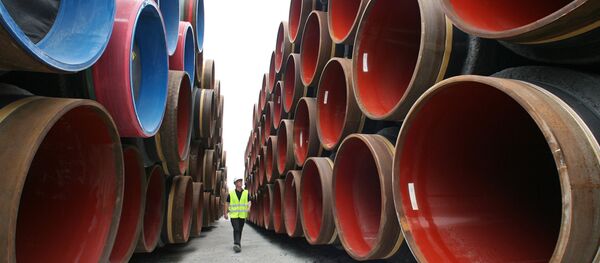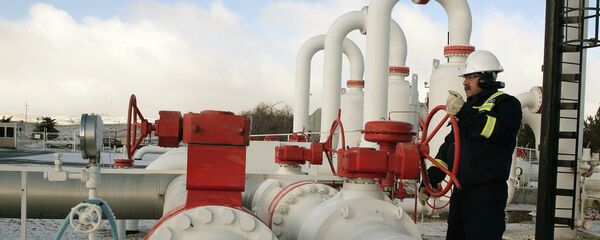In August, the Polish anti-monopoly regulator UOKiK blocked the establishment of a joint enterprise which would be in charge of construction and exploitation of the Nord Stream-2 pipeline.
As a result, Gazprom and its partners from Germany, France, Switzerland and the Netherlands withdrew their applications for merger approval.
"First, UOKiK acted as an anti-monopoly agency. Secondly, it explained its decision by local energy companies arguing that the implementation of the Nord Stream-2 project would undermine competition in the energy market," Polish journalist Rafal Zasun told Sputnik.
"Pressure is mounting on Gazprom in post-Soviet states and in the domestic market. The company has faced increased competition in some countries. Ukraine is diversifying its energy suppliers. In addition, Belarus is in talks about discounts on Russian gas," an article in the Swiss daily Neue Zürcher Zeitung read.
At the same time, demand for Russian gas in the European market is increasing. Recently, Gazprom’s exports to Europe have grown by 30 percent. Europe receives nearly 30 percent of natural gas from Russia.
Nord Stream-2 is a very important project both for European consumers and Gazprom, the article read.
Despite the stoplight decision by the Polish regulator, companies will not quit the project. By the end of the year, the companies are expected to find a new form of their participation in Nord Stream-2, according to the newspaper.
"They [Gazprom and its European partners] will probably be looking for legal loopholes to circumvent the Polish regulator’s ban, which I don’t think is final. To have a better picture of the situation we need to take a better look at EU and Polish legislation," Rafal pointed out.
If the companies work out a new form of partnership they will be able to attract investments for the project, the article read.
The Nord Stream 2 project presumes building two pipeline strings, with a total capacity of 55 billion cubic meters of gas a year, from Russia to Germany under the Baltic Sea.
An agreement on Nord Stream 2, involving the expansion of the Nord Stream gas pipeline, was signed in early-September 2014, during the Eastern Economic Forum in Russia’s Vladivostok. The new consortium was established by Gazprom, E.ON, Shell, BASF/Wintershall, OMV and Engie.



